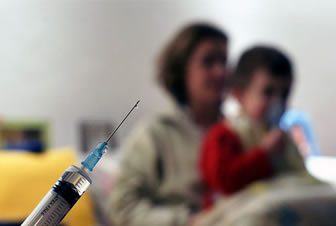R. Steinberg
Cambridge, Massachusetts, United States
 |
| Photography by Mauro Quercia
|
My dentist approached the chair to crown one of my favorite teeth. I am a retired orthopedic surgeon, and a fearful dental patient. I smiled sadly, and opened.
When she removed the swab, I proposed a challenge. “Could you get through one day of patients without saying ‘just’?” She grinned. “I can get through one patient,” she said—but moments later, syringe in hand, she said, “This is just the Novocain.” “This is just some anesthetic gel,” she said, and tucked a swab up where she was going to work. I nodded my understanding. She has good hands; over the years she has done what I have needed done without hurting me much. But something is wrong with that “just.”
I, too, learned to say “just” to my patients before I did something to them, especially when they were frightened or I thought I might hurt them. My teachers—lab techs, nurses, interns, residents, attending surgeons—set that example, both when we worked on the wards together and when they worked on me. But saying “just” felt wrong. Under the guise of informing the patient of what was coming, I was assuaging my own discomfort with causing pain. When I was the patient I experienced such utterances from caregivers as self-serving rather than helpful.
Good old Dr. Anderson, my childhood pediatrician, had white hair, pink cheeks, and rimless glasses. When I needed an inoculation, he absented himself from the room before his nurse wielded the needle. My parents praised that practice to their friends in my presence. “The doctor doesn’t want the children to be afraid of him,” they explained.
How dumb did they think I was? I knew who had given the orders to hurt me, and contemned the adult who presumed not only to cause me pain, but also to deceive me about its author. His employment of another to stick me with a needle was the same kind of lie as my dentist’s needle-stick-minimizing “just.”
We doctors-who-do-things-to-patients-they-don’t-like hold postgraduate degrees in deferral of gratifications, so we believe that the patient’s long-term best interest justifies whatever pain, humiliation, or expense we inflict. Or we mostly believe it. The part of us that fears pain and shrinks from inflicting it, the part of us our own aggression scares, wants to minimize all that, get past it as quickly as possible and return to being the kind healer everyone loves.
I find that “just” phony, and worse, counterproductive, because even a child knows better. Neutral information builds better confidence: “This is some anesthetic gel, so the needle-stick for the Novocain will hurt less.” When we tell the truth, we show the patient respect and spare him the fear of what we haven’t said—if we can just do it.
R. S. STEINBERG writes and teaches writing near Boston. He took up the pencil after an accident ended his career practicing and teaching orthopaedic surgery.
Highlighted in Frontispiece Spring 2013 – Volume 5, Issue 2
Spring 2013 | Sections | Doctors, Patients, & Diseases

Leave a Reply